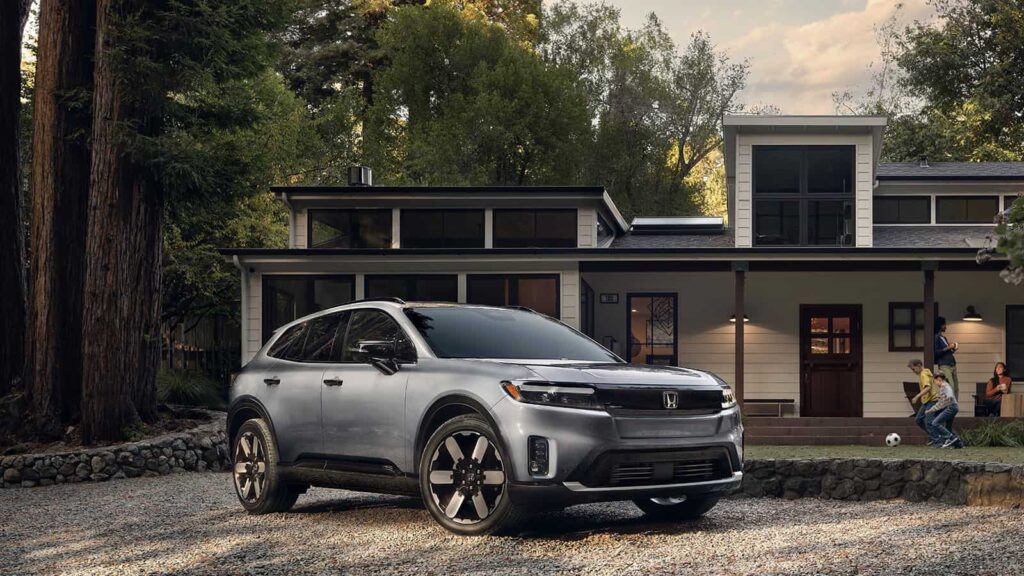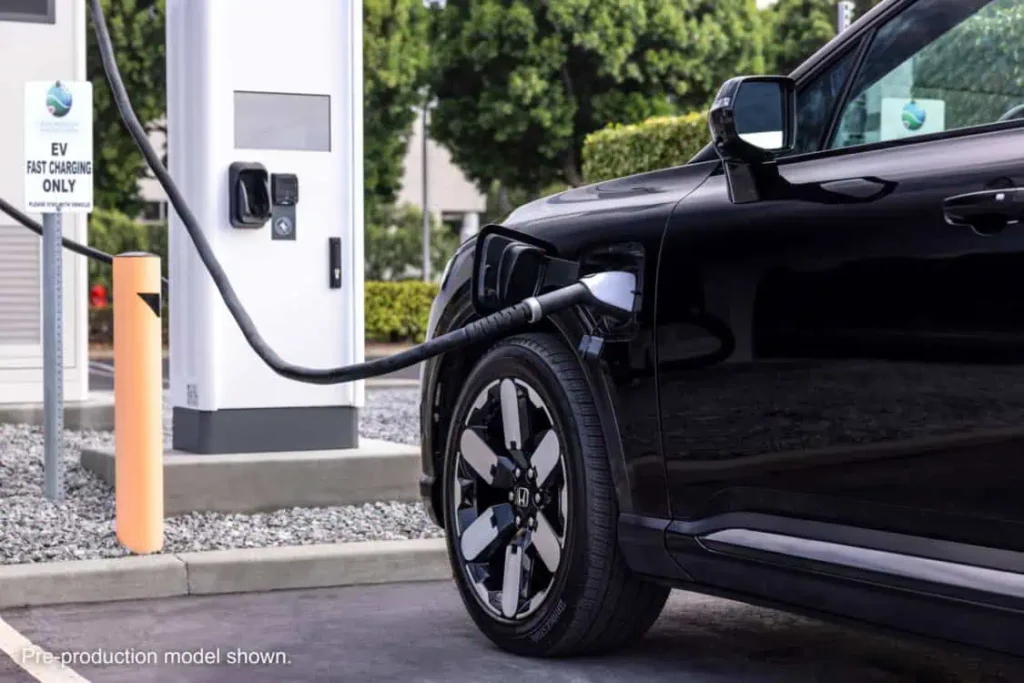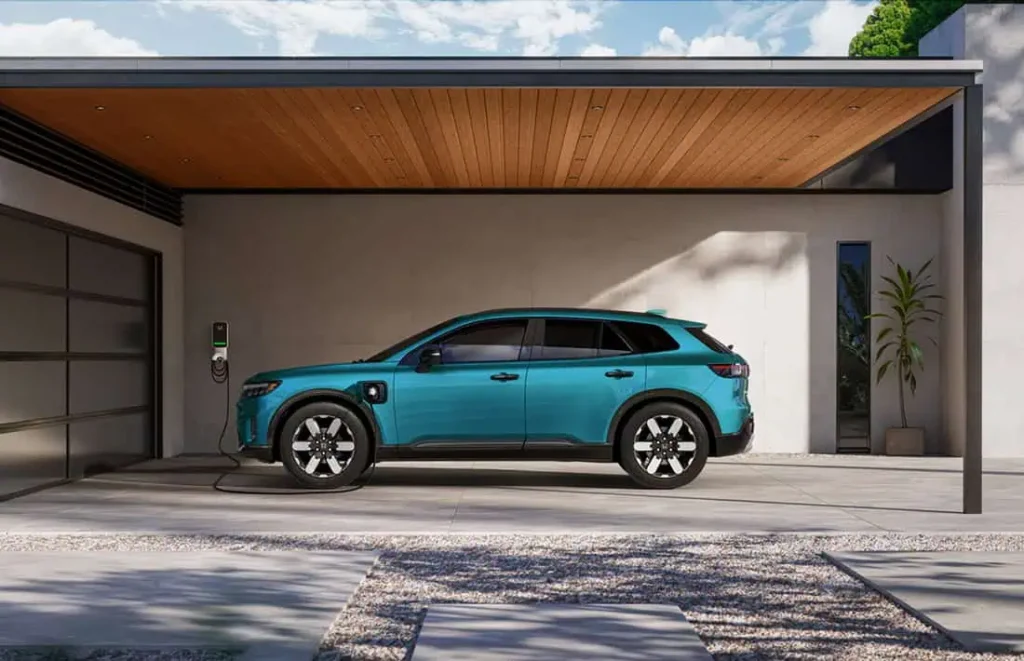Bold New $65B Honda EV Plan Includes Full Electrification by 2040
On May 16, 2024, Honda said the company plans to make Honda EVs and FCEVs represent 40% of its global auto sales as of 2030, and 100% of its global vehicle sales by 2040.
In its financial strategy, Honda is planning to invest approximately 10 trillion yen ($65 billion) during the period through fiscal year 2031, when it expects full-fledged popularization of EVs to start.
In March, LG Energy Solution and Honda announced a $4.4 billion investment in their joint venture’s new EV battery production facility near Jeffersonville, Ohio.

Honda’s Plan for Vertical Integration
Honda plans to build a vertically integrated EV value chain with a central focus on batteries, including all aspects of EV production. Honda will focus on its own procurement of raw materials for batteries, and the in-house production of finished EVs using Honda-produced batteries, including battery reuse and recycling. A reduction of production costs by approximately 35% is planned.
By 2030, Honda plans to reduce its cost of batteries to be procured in North America by more than 20%. Existing production facilities will produce ICE, EV, and Honda hybrid models on the same line.
Honda Invested $700 Million in Ohio Plants
In April, Honda announced it is investing at least $700 million in its plants based in Ohio. Honda’s Anna Plant in Ohio will be equipped with new 6,000-ton high-pressure mega die-casting machines, which will reduce the number of parts in the battery case and secondary parts from over 60 to 5.
Using friction stir welding (FSW), production efficiency will be increased.

Current and Future EV Lineup of Honda EVs
In 2024, Honda’s Prologue leads its electrified lineup with the perfect blend of style, power, and sustainability. This electric SUV runs on a platform developed in a collaboration with GM. Honda’s current lineup includes hybrid versions of its Accord and CR-V.
The first of its kind in the U.S., Honda’s upcoming, all-new CR-V e:FCEV will feature plug-in charging added to a fuel cell electric vehicle. The addition of a plug will be a welcome feature to hydrogen advocates, who have had difficulties with hydrogen vehicles due to cutbacks to hydrogen fueling stations being so severe in the U.S.
In China, the company plans to introduce 10 Honda EV models by 2027, making EVs represent 100% of its automobile sales in China by 2035.
Honda plans to make introductions of small-size EVs in various regions. Personal-use mini-EV models are planned to be introduced in 2025, as well as small EVs that emphasize the “joy of driving,” in 2026.
Honda’s Hybrid Electric Vehicle (HEV) Revamps
Honda plans to revamp the e:HEV system, its original two-motor hybrid-electric system. Honda’s HEV platforms will also be renewed to be lighter and more efficient, with improved fuel economy.
Honda plans to repurpose its EV development technologies to hybrid-electric models and adopt an electric all-wheel drive (e-AWD) system in HEVs, leveraging the motor installed in EV models.

Honda’s U.S. Advantage
Honda has a large and loyal following in the U.S. market, which Honda hopes will follow the brand as drivers convert from ICE to EV. New 100% U.S. tariffs against Chinese EVs ensure that Honda will not have to compete with China in the U.S. market, with the exception of Polestar and Volvo.
Honda’s bold and commendable business plan to fully convert to electric is a good move for the environment, as EVs are important to fighting climate change. It also seems to be a sound business plan for doing well in the global EV market going forward, as the world moves quickly from ICE to EV.

Electric Vehicle Marketing Consultant, Writer and Editor. Publisher EVinfo.net.
Services